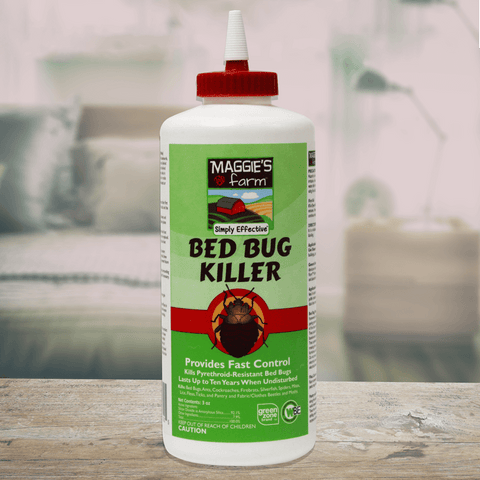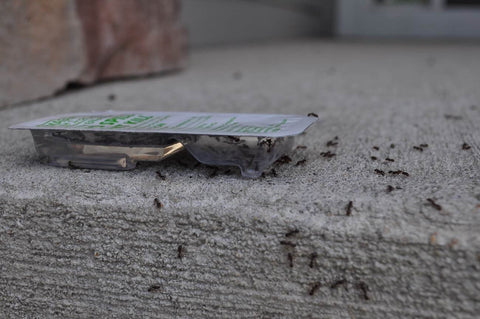Some pests prefer to build nests in wooden structures. One of these pests is the moisture ant. These ants love to nest in water-damaged wood whether it’s inside or outdoors. When moisture ants take up residence in your home, they can cause further damage to wooden structures. We’ve gathered information to help you prevent and eliminate a moisture ant infestation.
What are Moisture Ants?

Ants that are attracted to damp environments are categorized as moisture ants. These ants are about 4–4.5mm and yellowish-brown. Citronella and cornfield ants are both considered moisture ants.
These ants build nests, called cartons, in damaged or decaying wood. They often nest under rocks or in rotting logs outside. Moisture ants will also move indoors and nest in wooden structures of your home, often being found in bathrooms and basements. While these ants build nests in previously damaged wood, their tunneling can cause further structural damage.
Tips to Prevent Moisture Ants
Preventing a pest problem is always better than having to fight an infestation. Taking just a few steps can help keep your home pest-free. Check out a few tips to help keep moisture ants out of your home.
Eliminate Moisture in Home

The best thing you can do to ensure these ants don’t invade your home is to eliminate moisture build-up. Check your home for leaky pipes and repair or replace any you find. You’ll also want to examine the wood in moisture-heavy areas, like bathrooms, to ensure it’s in good condition. Using a dehumidifier can help to prevent moisture from building up in your home.
Examine Your Yard

If ants are spending time in your yard, they’re only a short distance from your home. Remove any rotting or water-damaged wood from your yard. Check the areas where pipes enter homes and ensure they aren’t leaking. Creating a barrier between your home and garden mulch can help to prevent problems with the wood.
Check for Aphids

Moisture ants feed on the honeydew that aphids produce, so they’ll often nest in areas where these garden pests are found. Examine your plants for these pests or signs of these pests including a sticky substance on plants. If you remove their food source, moisture ants will be less likely to stick around.
Perimeter Treatment

What are Signs of a Moisture Ant Infestation?
When ant nests are hidden inside your walls, it can make it difficult to identify an infestation. Thankfully, moisture ants leave behind a few clues to their presence.
Even though they live in wood, they still have to go out in search of food. If you spot a trail of these yellow ants, there’s a good chance a nest is hidden nearby.
When building nests close to your home, they will often push dirt into the cracks and crevices of your home. This can cause soil to be found on your basement floor.
How to Get Rid of Moisture Ants
Controlling a moisture ant problem quickly and effectively can help keep these ants from causing structural damage. Here are a few tips to help you get rid of a moisture ant infestation.
Treat the Nest

Use an Ant Bait

Some nests are harder to locate, but that doesn’t mean you can’t get rid of these pests. Ant baits, like our No Spill Ant Kill or Ant Killer Bait, can help you eliminate the ants you can’t see. Our bait is designed to allow ants to eat the bait and take it back to the nest. When ants share the bait with the colony, it will help to eliminate the infestation.
Remove Damaged Wood

Since moisture ants are attracted to damaged wood, you’ll want to remove this from your home or yard. Removing their source of shelter will help to ensure they won’t stick around. It will also help to prevent other moisture ants from showing up to your house.
No one wants to deal with uninvited guests, especially a colony of moisture ants. Taking the time to eliminate moisture build-up in your home and yard can help keep your home free of these ants. If pests are giving you a fit, we’re here to help! Check out our Maggie’s Farm Simply Effective™ Pest Control products.
